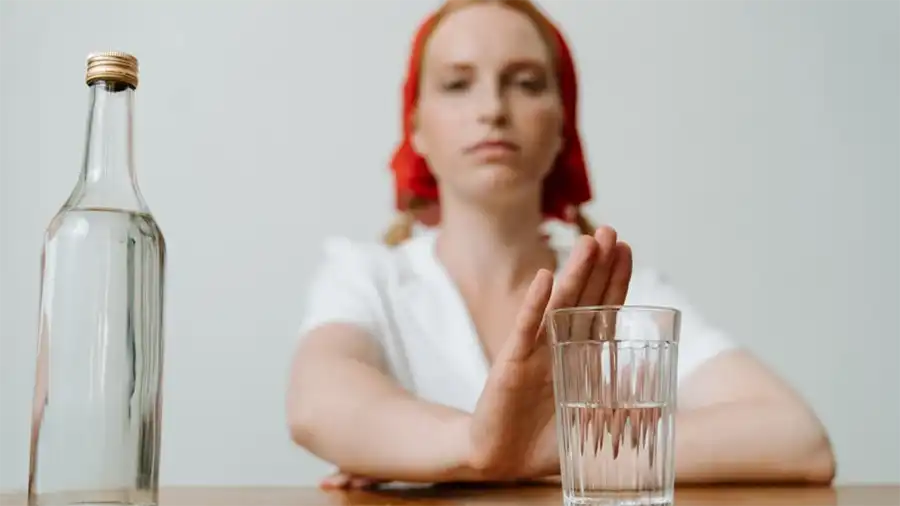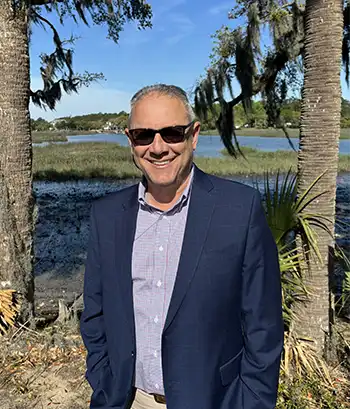
The new year is a time for resolutions, self-reflection and – for some – a fresh start with sobriety. Life in the Lowcountry is hardly conducive to any attempt at alcohol sobriety, many would attest and Charleston is the place to be if you’re inclined to imbibe.
According to the South Carolina Department of Alcohol and Other Drug Abuse Services, Charleston County ranked first in the state for binge drinking (nearly one in four people), second for heavy drinking and fifth for alcohol hospitalizations in 2023.
For those with a desire to quit drinking, you’re not alone. Regardless of how you got to the point where you are, help is out there. Several residents have shared their stories, offering understanding, perspective and support from the sober side.
Life In The Fast Lane
 For Robert Hopkins, sobriety came unexpectedly. “I grew up a partier – life was a highway in the ’70s and ’80s and it was part of having fun. While some people could stop at two drinks, I would be the one to turn it up,” he said. With his drink of choice being beer, he didn’t think he had a problem. “I was always employed; I had good relationships with people. I wasn’t drinking liquor from a brown bag and wearing a trench coat under a bridge, which is what I imagined a drinking problem looked like,” he explained.
For Robert Hopkins, sobriety came unexpectedly. “I grew up a partier – life was a highway in the ’70s and ’80s and it was part of having fun. While some people could stop at two drinks, I would be the one to turn it up,” he said. With his drink of choice being beer, he didn’t think he had a problem. “I was always employed; I had good relationships with people. I wasn’t drinking liquor from a brown bag and wearing a trench coat under a bridge, which is what I imagined a drinking problem looked like,” he explained.
It was over the course of four days in 2009 that Hopkins continued to tell himself he would take a day off from drinking but found himself unable to stop. “I realized on a Tuesday, ‘I’m about to drink again and I don’t want to. You have to be kidding me; I’m actually drinking against my will!’” He walked out the door that day and found a 12-step program, rekindled a relationship with God and never looked back. Now in his 16th year of sobriety, he still attends daily meetings.
A Family Tradition
One Mount Pleasant mom, Jane (whose name has been changed for privacy purposes), was used to being around alcohol from a young age. “I come from a fun family and thought it was normal for parents to wake up on Saturdays and pour a screwdriver,” she said. Jane began drinking in her early teens, but her party lifestyle morphed into drinking to cope with anxiety and depression in her late 20s as she struggled with her mental health and a bad breakup.
Last summer, Jane – now married with a young child and two teenagers – was fed up with regularly spending days recovering after bouts of heavy drinking and worried about the example she was setting for her children. She finally asked for help. After spending five days in a detox center, she doesn’t miss alcohol. “I haven’t felt this good since I was 16 years old,” she mused. “I’m not anxious that I’ll embarrass myself because I drank too much.” She regularly attends meetings through a 12-step program. “I was surprised to discover that I am in there with a bunch of other Mount Pleasant moms who have gone through the same thing.”
A Coping Mechanism
 Though Johnny McDonald was used to drinking daily, he never considered himself to have a problem. Admittedly, his drinking increased during COVID as he coped with the passing of his mother, coupled with anxiety and depression, but not to what he thought were significant levels. “My therapist had me fill out a questionnaire with questions like, ‘Do you ever drink and black out?’ And no, I had never blacked out,” he said. “I answered ‘yes’ to a few questions but thought I aced it. I thought alcoholics were people who couldn’t function. In the past I had taken a break from alcohol for a week here and there, but Charleston is a drinking town, and you just get back into it.”
Though Johnny McDonald was used to drinking daily, he never considered himself to have a problem. Admittedly, his drinking increased during COVID as he coped with the passing of his mother, coupled with anxiety and depression, but not to what he thought were significant levels. “My therapist had me fill out a questionnaire with questions like, ‘Do you ever drink and black out?’ And no, I had never blacked out,” he said. “I answered ‘yes’ to a few questions but thought I aced it. I thought alcoholics were people who couldn’t function. In the past I had taken a break from alcohol for a week here and there, but Charleston is a drinking town, and you just get back into it.”
His therapist soon confirmed he may have a drinking problem and asked if he would consider quitting if it would help his mental health. For McDonald, it was a no-brainer. He attended his first support meeting in 2021 and has been sober since. With good health came good fortune, and he noticed all aspects of his life – especially family and work – significantly improved. “I’m more confident, the anxiety is pretty much gone. It’s like I’ve been freed from prison. Your whole physicality changes,” he smiled. “I am more present as a dad and a husband – it’s unbelievable.”
Studying Bad Habits
 Aidan Baumann was not a partier either, but the COVID shutdown dissolved her focus and support system she had as a high school dancer. She began drinking to “practice for college” at home, and was a pro by the time college began. “My friends and I would go out and meet older men who would buy us drinks, and they would get us absolutely blacked out. It seemed normal because we were in college, and we were young and that seemed like what everyone was doing. I would wake up in the mornings with crippling anxiety and depression, and my only solution was to keep drinking,” she explained.
Aidan Baumann was not a partier either, but the COVID shutdown dissolved her focus and support system she had as a high school dancer. She began drinking to “practice for college” at home, and was a pro by the time college began. “My friends and I would go out and meet older men who would buy us drinks, and they would get us absolutely blacked out. It seemed normal because we were in college, and we were young and that seemed like what everyone was doing. I would wake up in the mornings with crippling anxiety and depression, and my only solution was to keep drinking,” she explained.
Things spiraled downward quickly as she leaned more heavily on alcohol to suppress her anxiety, pregaming before dance performances and eventually secretly drinking at work. “I had to do it to stop the shakes and not be an anxious mess and pretend I had everything together and be my bright, chippy self,” Baumann said. “People thought I had it all together, but I was dying on the inside.”
Following a breakup and a one-car accident, she told her mother she needed help. Last summer she spent a month in detox locally and two months in a recovery program in North Carolina, and now has rediscovered many joys in her life. She also attends support meetings daily. “Once I finally admitted I had a problem – there was so much shame around it – life got so much better than I would have ever thought,” she beamed.
A Cultural Norm
J.R. McCroskey started drinking at a young age and was never taught to drink responsibly. He drank heavily throughout high school and college and went into a career field where working hard and playing hard – often with a drink in hand – was part of the culture. An early-morning house fire in 2007 fueled anxiety and depression, and his tendencies shifted from partying to self-medicating with alcohol. “For two years of my life, I was treating my depression with a depressant,” he explained. “At 29, I woke up in a hospital with full-blown delirium tremors, close to dying from alcohol poisoning.” That was 16 years ago, and with the help of a 12-step program, he has been happy and sober ever since.
“I’m pretty passionate about sobriety now, especially when it comes to mental health. It’s a stigma that needs to be changed,” he said. “I was so worried what people would think of me, but you get to a point where you don’t care what other people think. And the ones who care want you to be better. Struggling with alcohol – especially in Charleston – is way more common than people are willing to admit.”
All of those who shared their stories agreed that if you are ready to stop drinking, the first step is to ask for help. Ask a supportive friend or family member, go to a 12-step meeting or check yourself into a detox center. Help is available, and there is hope for a sober future if you are ready to make a change.
By Anne Toole

Leave a Reply